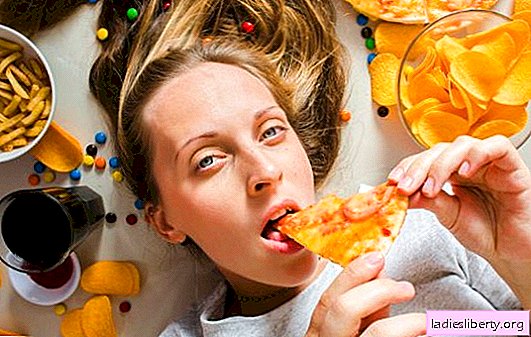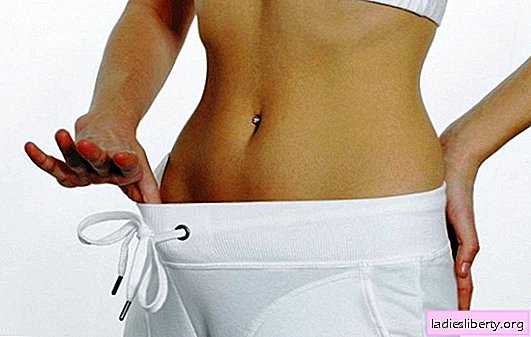
Compulsive overeating is an eating disorder that is characterized by obsessive attacks of food intake. Patients often develop overweight or obesity. The victim can eat about 6,000 calories in one day.
Lack of treatment can lead to serious consequences - heart attack, stroke, or joint disease.
What methods are used in clinical practice to treat compulsive overeating?
How common is the pathology?
Compulsive overeating is the most common eating disorder in Russia, affecting 3.5% of women and 2% of men. The disease usually leads to obesity, although it also occurs in people with normal weight. Some genetic factors predispose to the development of the disorder.
The main cause of compulsive overeating has not been identified. Stress, negative thinking, mental disorders are possible factors that lead to overeating.
How do doctors treat compulsive overeating?
Cognitive-behavioral and interpersonal therapy are effective in treating compulsive overeating. Treatment is carried out both in the hospital and on an outpatient basis.
If a person has severe problems with restraining the urge to eat food, it is recommended to stay in the clinic.
If the symptoms of the disorder are not so pronounced, outpatient treatment may be sufficient.
With compulsive overeating, the same therapeutic methods are used as with bulimia. Although effective, in recent years special treatment concepts have been developed. Doctors and psychologists hope for even higher success rates.
The basic rules of treatment:
- Change eating habits;
- Increase the amount of exercise in everyday life;
- Change negative thinking and increase self-esteem
- Relapse prevention at home.
Cognitive behavioral therapy suggests that unhealthy eating behavior is a consequence of incorrect thinking patterns. Therefore, a person should keep a diary of their habits and feelings. Documentation can help identify risk factors - stress and negative emotions - that are involved in the development of obsessive thoughts.
With the help of nutritionists, the patient learns to eat a balanced diet and eat regularly. Instead of continuing to compensate for stress through food, patients are exploring alternative stress management strategies. A person regains control over his actions and can fight food addiction. During therapy, the patient learns the necessary self-help skills, takes responsibility and can actively contribute to recovery.
Interpersonal therapy (MLT) examines the patient's current life situation and his interpersonal relationships. MLT works on the social context in which an eating disorder occurs.
A person needs to learn how he can better resolve conflicts with other people. A sense of security helps prevent overeating. Improving social skills reduces the desire to compensate for problems with food. This form of therapy is also well suited for outpatient treatment.
When can I do without drugs?
If the patient is additionally suffering from depression or anxiety disorders, drug therapy is required. For a patient suffering from severe depression, it is recommended not only psychotherapy, but also the use of antidepressants.
Serotonin Reuptake Inhibitors (SSRIs) have an antidepressant effect. They increase the concentration of serotonin in the brain, but also reduce the frequency of bouts of overeating in the short term.
Important! About 17% of patients return to their old habits after drug withdrawal. It is recommended to combine psychotherapeutic and drug treatment in order to achieve the best results.
According to experts, about 70% of patients successfully get rid of the disorder with the help of modern methods of treatment. About 6-8% of patients return to old habits. The prognosis depends on how pronounced food dependence. If compulsive overeating and concomitant diseases are treated at an early stage, the chances of recovery are very high.











